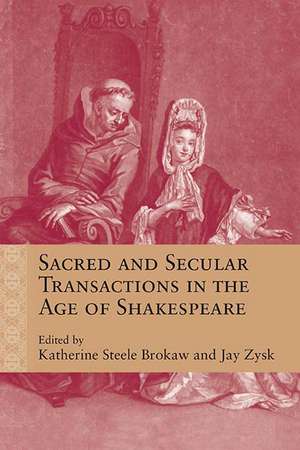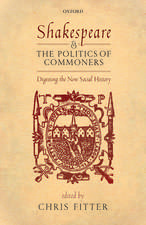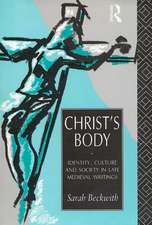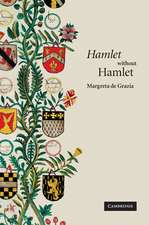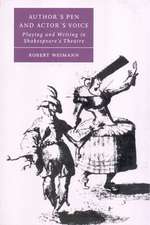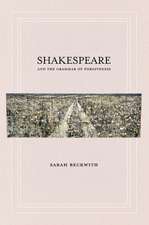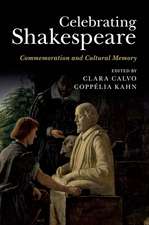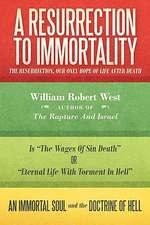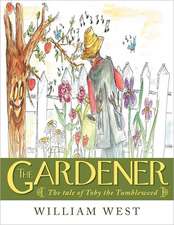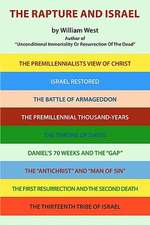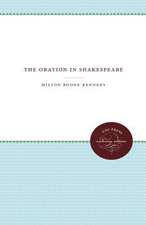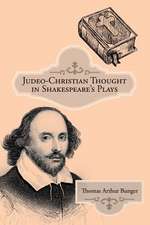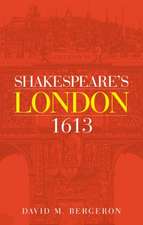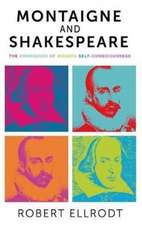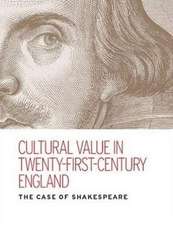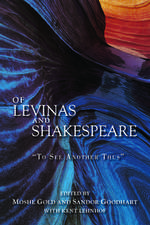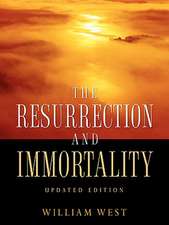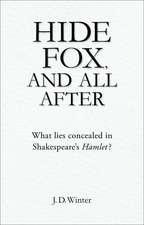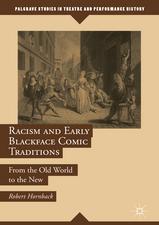Sacred and Secular Transactions in the Age of Shakespeare: Rethinking the Early Modern
Editat de Katherine Steele Brokaw, Jason Zysk Contribuţii de Sarah Beckwith, Kent Cartwright, Brian Cummings, Margreta de Grazia, Rachael Deagman, Tobias Doring, Helga Duncan, Angela Heetderks, Robert Hornback, Jeanne McCarthy, Jennifer R. Rust, E. Maggie Solberg, William Westen Limba Engleză Paperback – 14 aug 2019
The term “secular” inspires thinking about disenchantment, periodization, modernity, and subjectivity. The essays in Sacred and Secular Transactions in the Age of Shakespeare argue that Shakespeare’s plays present “secularization” not only as a historical narrative of progress but also as a hermeneutic process that unleashes complex and often problematic transactions between sacred and secular. These transactions shape ideas about everything from pastoral government and performative language to wonder and the spatial imagination.
Thinking about Shakespeare and secularization also involves thinking about how to interpret history and temporality in the contexts of Shakespeare’s medieval past, the religious reformations of the sixteenth century, and the critical dispositions that define Shakespeare studies today. These essays reject a necessary opposition between “sacred” and “secular” and instead analyze how such categories intersect. In fresh analyses of plays ranging from Hamlet and The Tempest to All’s Well that Ends Well and All Is True, secularization emerges as an interpretive act that explores the cultural protocols of representation within both Shakespeare’s plays and the critical domains in which they are studied and taught.
The volume’s diverse disciplinary perspectives and theoretical approaches shift our focus from literal religion and doctrinal issues to such aspects of early modern culture as theatrical performance, geography, race, architecture, music, and the visual arts.
Thinking about Shakespeare and secularization also involves thinking about how to interpret history and temporality in the contexts of Shakespeare’s medieval past, the religious reformations of the sixteenth century, and the critical dispositions that define Shakespeare studies today. These essays reject a necessary opposition between “sacred” and “secular” and instead analyze how such categories intersect. In fresh analyses of plays ranging from Hamlet and The Tempest to All’s Well that Ends Well and All Is True, secularization emerges as an interpretive act that explores the cultural protocols of representation within both Shakespeare’s plays and the critical domains in which they are studied and taught.
The volume’s diverse disciplinary perspectives and theoretical approaches shift our focus from literal religion and doctrinal issues to such aspects of early modern culture as theatrical performance, geography, race, architecture, music, and the visual arts.
Preț: 227.42 lei
Nou
Puncte Express: 341
Preț estimativ în valută:
43.52€ • 47.26$ • 36.56£
43.52€ • 47.26$ • 36.56£
Carte disponibilă
Livrare economică 01-15 aprilie
Livrare express 15-21 martie pentru 31.18 lei
Preluare comenzi: 021 569.72.76
Specificații
ISBN-13: 9780810140516
ISBN-10: 0810140519
Pagini: 264
Dimensiuni: 152 x 229 x 20 mm
Greutate: 0.36 kg
Editura: Northwestern University Press
Colecția Northwestern University Press
Seria Rethinking the Early Modern
ISBN-10: 0810140519
Pagini: 264
Dimensiuni: 152 x 229 x 20 mm
Greutate: 0.36 kg
Editura: Northwestern University Press
Colecția Northwestern University Press
Seria Rethinking the Early Modern
Notă biografică
KATHERINE STEELE BROKAW is an associate professor of English at University of California, Merced.
JAY ZYSK is assistant professor of English at University of Massachusetts Dartmouth.
JAY ZYSK is assistant professor of English at University of Massachusetts Dartmouth.
Cuprins
Preface Sarah Beckwith
Introduction: Hermeneutics of Sacred and Secular Katherine Steele Brokaw and Jay Zysk
Part One: Defining a Secular Hermeneutics
Titus’s Infinite Jest William N. West
Secularity Meets Wonder Woman in All’s Well that Ends Well Kent Cartwright
Wooing Words: Secularizing Language and the Language of Secularism in
Much Ado About Nothing and Romeo and Juliet Tobias Döring
Part Two: Political and Social Secularities
“Of government, the properties to unfold”: Governmentalities in Measure for Measure
Jennifer R. Rust
Toward a Coherent Ideology of Proto-Racism in the Renaissance: Or, the Anachronism of Would-Be Secular Modern Racism Robert Hornback
Part Three: Spaces of the Secular
“Into the Chapel”: Unmodern Interiority and Quintilian Inwardness in Hamlet Jeanne H. McCarthy
Leaving the Place of Conscience in All Is True Rachael Deagman
“In this most desolate isle”: The Tempest and its Sacred Spaces Helga Duncan
Part Four: Secular Aesthetics
Shakespeare and the Hymnody of State Angela Heetderks
Mirror Images: Mary and Hermione, Idolatry and Iconoclasm Emma Maggie Solberg
Afterword Brian Cummings and Margreta de Grazia
Introduction: Hermeneutics of Sacred and Secular Katherine Steele Brokaw and Jay Zysk
Part One: Defining a Secular Hermeneutics
Titus’s Infinite Jest William N. West
Secularity Meets Wonder Woman in All’s Well that Ends Well Kent Cartwright
Wooing Words: Secularizing Language and the Language of Secularism in
Much Ado About Nothing and Romeo and Juliet Tobias Döring
Part Two: Political and Social Secularities
“Of government, the properties to unfold”: Governmentalities in Measure for Measure
Jennifer R. Rust
Toward a Coherent Ideology of Proto-Racism in the Renaissance: Or, the Anachronism of Would-Be Secular Modern Racism Robert Hornback
Part Three: Spaces of the Secular
“Into the Chapel”: Unmodern Interiority and Quintilian Inwardness in Hamlet Jeanne H. McCarthy
Leaving the Place of Conscience in All Is True Rachael Deagman
“In this most desolate isle”: The Tempest and its Sacred Spaces Helga Duncan
Part Four: Secular Aesthetics
Shakespeare and the Hymnody of State Angela Heetderks
Mirror Images: Mary and Hermione, Idolatry and Iconoclasm Emma Maggie Solberg
Afterword Brian Cummings and Margreta de Grazia
Descriere
Sacred and Secular Transactions in the Age of Shakespeare is a collection of essays that argue that Shakespeare’s plays present “secularization” not only as a historical narrative of progress but also as a hermeneutic process that unleashes complex and often problematic transactions between sacred and secular.
